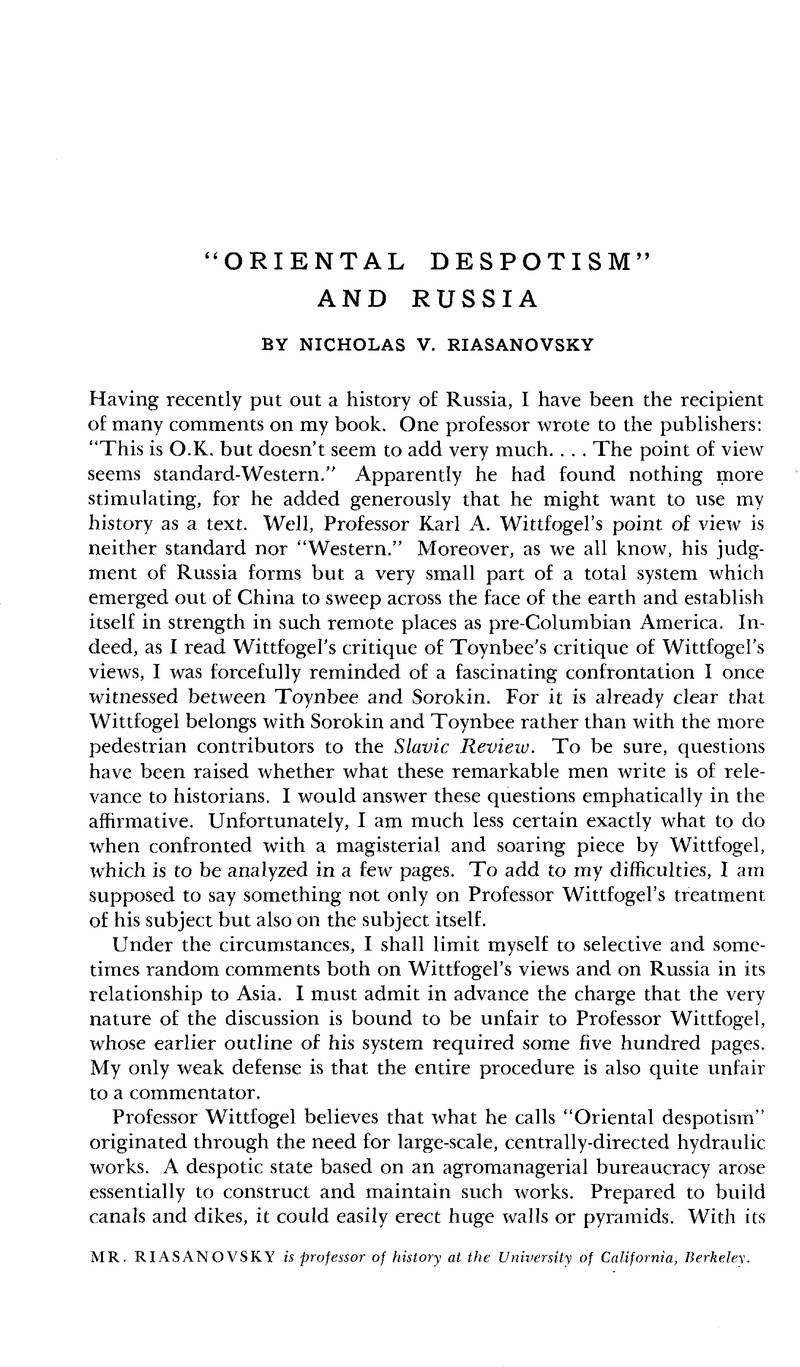Published online by Cambridge University Press: 27 January 2017

1 Additionally, according to Wittfogel, Russia was affected, presumably from the tenth century, by another Oriental despotism, the Byzantine. I am not, however, going to discuss the extremely important subject of Russo-Byzantine relations for at least three reasons: in general, it is not considered a part of the topic of Russia and Asia; while Wittfogel does include it in his scheme, he devotes very little attention to it; and, finally, I lack space.
2 I realize, of course, that what Professor Wittfogel has to contribute to Russian history is not in the nature of a detailed investigation of facts. And, to repeat, I welcome his contribution. Indeed, it is impossible for a Toynbee or a Wittfogel to specialize in the history of every country which he discusses or classifies. Regretfully, it is usually equally impossible for specialists to agree with these master builders.
3 See especially Alexander, Gerschenkron, Economic Backwardness in Historical Perspective: A Book of Essays (Cambridge, Mass., 1962).Google Scholar